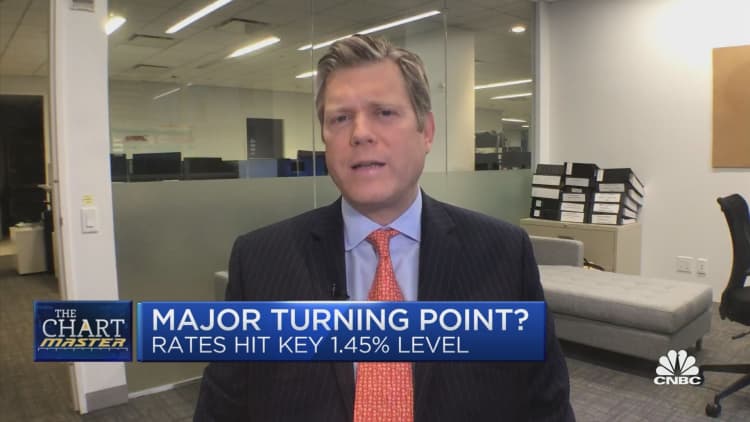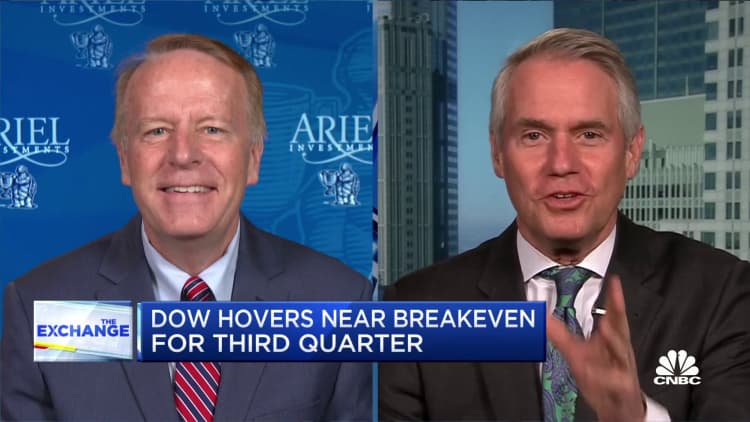Federal Reserve Chairman Jerome Powell still expects inflation to ease eventually, but said Wednesday that he sees the current pressures running into 2022.
Assessing the current economic situation, the Fed chief said during a panel discussion hosted by the European Central Bank that he was "frustrated" that getting people vaccinated and arresting the spread of the Covid delta variant "remains the most important economic policy that we have."
"It's also frustrating to see the bottlenecks and supply chain problems not getting better — in fact at the margins apparently getting a little bit worse," he added. "We see that continuing into next year probably, and holding up inflation longer than we had thought."

Inflation by the Fed's preferred measure is running at its hottest pace in about 30 years. Powell and most of his colleagues say they expect the current pressures to decline back to trend as supply chain bottlenecks ease and demand goes back to pre-pandemic levels. He said Wednesday that 2022 should be "quite a strong year" for economic growth.
However, officials as of late have acknowledged that the current inflation conditions have not eased the way the Fed thought they would. The Federal Open Market Committee last week collectively raised its projection for 2021 core inflation to 3.7% from the 3% forecast in June.
"The current inflation spike is really a consequence of supply constraints meeting very strong demand, and that is all associated with the reopening of the economy, which is a process that will have a beginning, a middle and an end," Powell said.
"We see those things resolving," he said. "It's very difficult to say how big those effects will be in the meantime or how long they will last."
Powell's continued expectations that inflation is temporary were echoed by European Central Bank President Christine Lagarde, who sat on the panel with Powell, Bank of England Governor Andrew Bailey and Bank of Japan Governor Haruhiko Kuroda.
"We monitor very carefully, but we certainly have no reason to believe that these price increases we are seeing now will not be largely transitory going forward," Lagarde said.

Should that not be the case, Powell said the Fed is prepared to act. Central bank officials already have indicated they are inclined to begin tapering their monthly asset purchases by the end of the year, though interest rate increases are not expected until at least the end of 2022.
"Of course, if we were to see sustained higher inflation and that were to become a serious concern, I would tell you the FOMC would certainly respond and we would use our tools to ensure that inflation runs at levels that are consistent with our goal," Powell said.
Become a smarter investor with CNBC Pro.
Get stock picks, analyst calls, exclusive interviews and access to CNBC TV.
Sign up to start a free trial today.


